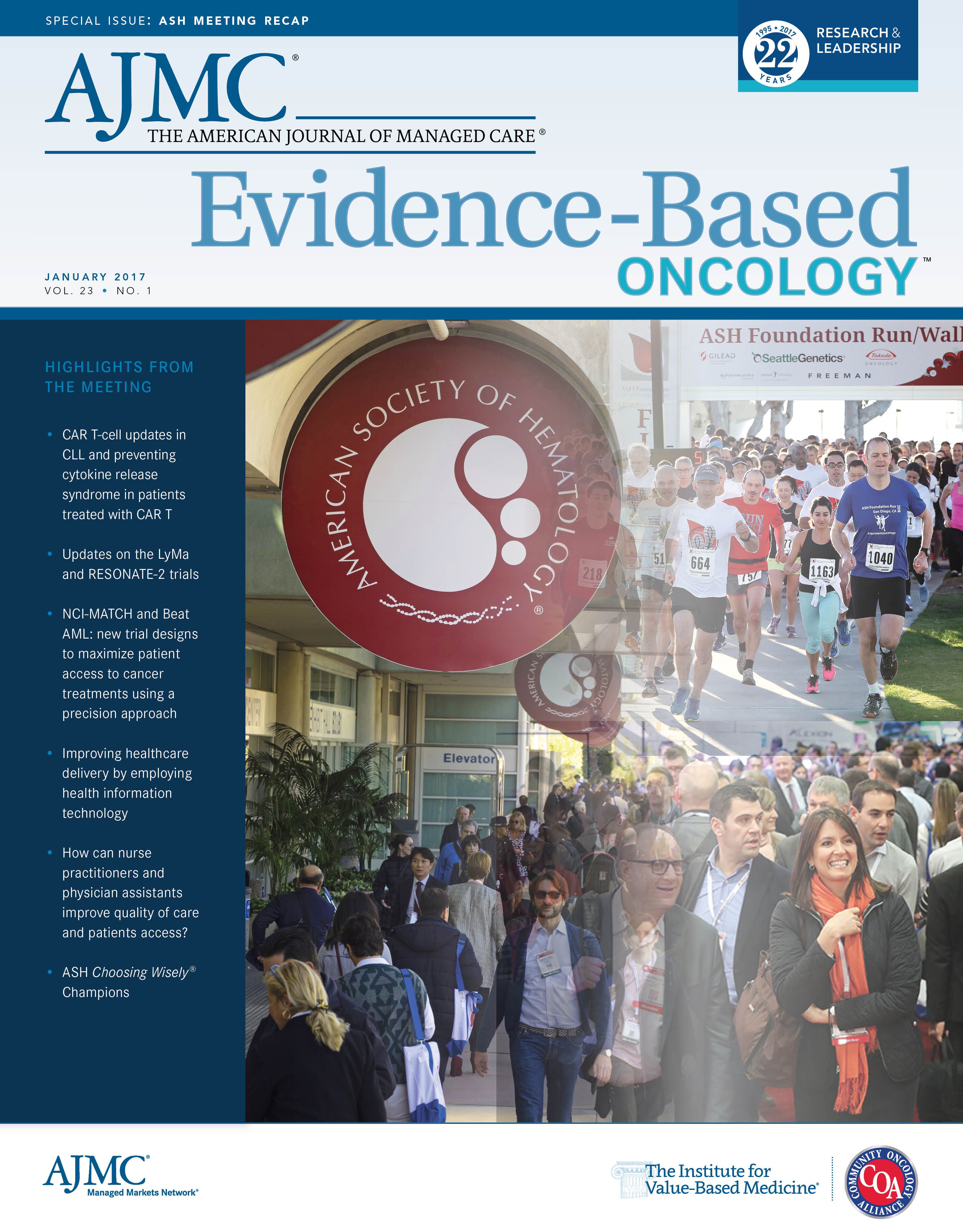- Center on Health Equity & Access
- Clinical
- Health Care Cost
- Health Care Delivery
- Insurance
- Policy
- Technology
- Value-Based Care
Phase 3 GALLIUM Study Shows Promising Results With Obinutuzumab for Follicular Lymphoma
The results showed that obinutuzumab-based immunochemotherapy and maintenance improved progression-free survival in treatment-naïve patients with follicular lymphoma.
RESULTS OF THE PHASE 3 GALLIUM STUDY
, which compared the safety and efficacy of rituximab and obinutuzumab as first-line treatments for patients with previously untreated follicular lymphoma (FL), were presented at the 58th Annual Meeting & Exposition of the American Society of Hematology.
The research found that obinutuzumab-based immunochemotherapy and maintenance resulted in a significant improvement in progression-free survival (PFS) compared with rituximab therapy, supporting its use as a new standard of care for patients with FL despite a higher frequency of adverse events. The current standard of care for patients with advanced-stage FL is immunochemotherapy and maintenance with rituximab, which is associated with median PFS of 6 to 8 years and median survival of 12 to 15 years.
“Since the incorporation of rituximab into first-line therapy for patients with follicular lymphoma, the outlook for these patients has improved significantly. This is due, first, to the addition of rituximab to induction therapy, and secondly, as maintenance, with the PFS virtually double that seen a decade ago,” said study author Robert Marcus, MA, FRCP, FRCPath, consultant hematologist at King’s College Hospital in London. Despite these gains in survival time, patients frequently relapse after rituximab-based therapy for FL, which is incurable.
For this study, the researchers set out to examine the survival outcomes for treatment with obinutuzumab, which has shown promising activity and manageable toxicity when combined with chemotherapy in relapsed, indolent non-Hodgkin lymphoma. A total of 601 previously untreated patients with FL were assigned to receive the obinutuzumab chemotherapy regimen and 601 to receive rituximab. The primary endpoint was investigator-assessed PFS; the study also assessed safety and efficacy in the patients.
At a median follow-up time of 34.5 months, obinutuzumab-treated patients had a 34% reduction in the risk of progression or death. The observed hazard ratio of 0.66 for that treatment would translate to a 1.5-times longer median PFS compared with the rituximab arm, or an estimated 3-year increase in PFS if the rituximab arm had an assumed median PFS of 6 years. The rates of investigator-assessed PFS after 3 years were 80.0% for the obinutuzumab arm and 73.3% for the rituximab arm. At the time of the analysis, 5.5% of the patients receiving obinutuzumab and 8.7% of the patients receiving rituximab had died.
Though the obinutuzumab arm showed improvements in overall survival, these patients also reported adverse events (AEs) more frequently. In this group, 74.6% experienced grade 3 to 5 AEs and 46.1% reported serious AEs, compared with 67.8% and 39.9%, respectively, of rituximab patients. The AEs caused 16.3% of obinutuzumab patients and 14.2% of rituximab patients to discontinue treatment.
“Fewer patients are relapsing early, which may give this group more therapeutic options, and the complete remission rates with lower intensity regimens are increased with obinutuzumab, broadening the applicability of combination therapy to frailer patients,” said Marcus. “We are optimistic that the early adoption of obinutuzumab-based therapy will further improve the outlook for patients with follicular lymphoma.”
REFERENCE
Marcus RE, Davies AJ, Ando K, et al. Obinutuzumab-based induction and maintenance prolongs progression-free survival (PFS) in patients with previously untreated follicular lymphoma: primary results of the randomized phase 3 GALLIUM study. Presented at: 58th American Society of Hematology Annual Meeting & Exposition; December 4, 2016; San Diego, CA. Abstract 6.

